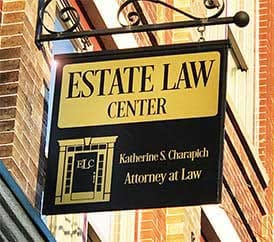Irrevocable Trusts
Irrevocable trusts are trusts that are established to accomplish objectives such as asset protection or the planning for incapacity. An irrevocable trust removes the rights of ownership and places those rights into the irrevocable trust. In general, an Irrevocable Trust cannot be modified unless done so by the beneficiaries and within very strict guidelines.
The Estate Law Center, PLLC, cautions clients who want to establish an irrevocable trust to carefully weigh the benefits and drawbacks of an irrevocable trust.
There are many types of irrevocable trust. The following are just a few examples, with a brief overview of their focuses.
Special Needs Trusts
A special needs trust is a trust that is established for a person with a disability who is receiving government benefits – such as Supplemental Security Income (SSI) or Medicaid, and if he inherits money or has his own resources he will be disqualified from receiving those government benefits due to excess assets.
Special needs trusts are complex; however, they provide a means for the beneficiary to have access to money for needs not covered under the government benefit(s). There are self-settled special needs trusts and third-party special needs trusts. The third-party special needs trust can be established inter vivos (during one’s life) or as a testamentary trust (through a will). The third-party special needs trusts are often established by parents and grandparents for the benefit of a child with special needs. When a special needs trust is established for a child inter vivos, the name of that special needs trust can be shared with other relatives for inclusion in their estate plans if they want to devise or bequeath assets to the child with special needs so that the child is not precluded from his government benefits.
Asset Protection Trusts
An asset protection trust is an irrevocable trust that transfers the ownership of the asset into the asset protection trust, and protects the asset(s) for a specified use. There are many types of asset protection trusts, including but not limited to income only trusts, charitable remainder trusts, life insurance trusts, family trusts, and sometimes real estate trusts.
There are many reasons for placing assets into an asset protection trust; they range from the desire to keep a family homestead within the bloodline, to planning for incapacitation and the need for long-term care and being eligible for Medicaid benefits.
The Estate Law Center, PLLC, encourages clients to consider matters of liquidity when entertaining the possibility of placing assets into an asset protection trust, as well as the five-year look back when Medicaid eligibility is a client’s goal.
If you are interested in learning more about irrevocable trusts, call the Estate Law Center, PLLC, at 540-827-4395 or contact us online.
